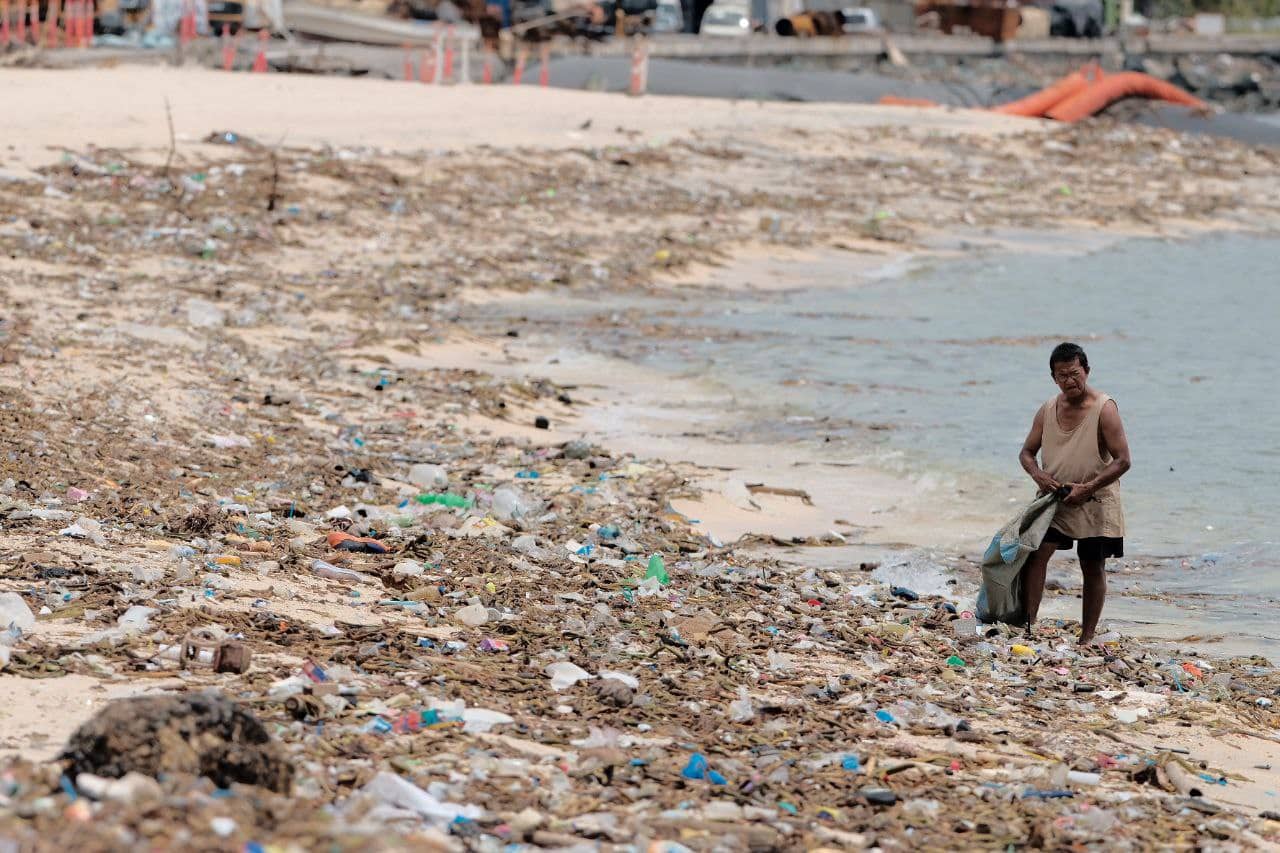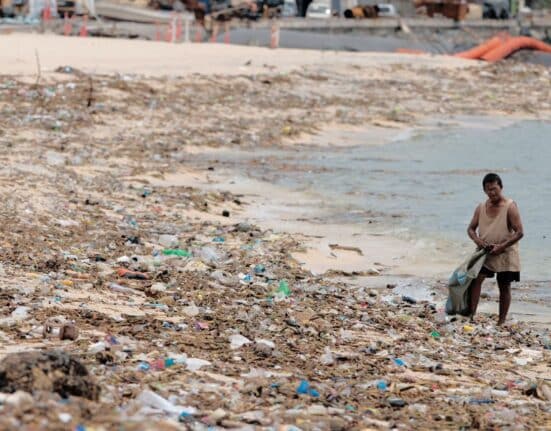IN its second special documentary report, republicasia tackled the extent and magnitude of the plastic waste crisis in the Philippines – an issue that is very timely, considering that the Philippines is one of the top plastic polluters in the world.
A 2021 World Bank Report revealed that the Philippines generates 2.7 million tons of plastic waste each year.
The report said this is attributable to the country’s high dependence on single-use plastics, which has led to the so-called “sachet economy.” In fact, the World Bank estimates that Filipinos consume around 163 million pieces of sachet every day.
“In the Philippines, the plastics industry is not only vital to the national economy (contributing US$2.3 billion in 2018), but plastics also provide low-cost consumer goods to poor and middle-income families,” it said.
Ticking Time Bomb
Environmental group Greenpeace described the Philippines’ plastic waste crisis as a ticking time bomb, with the problem projected to triple by 2040.
Greenpeace-Philippines Zero Waste Campaigner Marian Ledesma believes that the 2020s is a crucial decade for addressing the crisis and to prevent the unimaginable degradation it may cause.
So we have to act now and start implementing it so that we don’t reach those rates of production, because even now it’s quite unmanageable to think if magti-triple pa yung rami ng plastic,”
Marian Ledesma
The ‘biggest culprits’
But amidst the worsening crisis, who bears the accountability in resolving the plastic pollution problem?
For Ledesma, the biggest culprits are the corporations that keep on producing plastic packaging which replaced the sustainable practices of Filipinos in “tingi culture.” She is referring to old retail practice in the Philippines where Filipinos usually bring bottles to buy refills of cooking oil, soy sauce and the like. But with the introduction of the sachet, this “refill system” was upended.
SUGGESTED STORIES:
Taylor Swift, tortured poet, exorcizes demons with new double album
NEW YORK, United States: Taylor Swift’s hotly anticipated “The Tortured.
NBA Playoffs aarangkada na!
NATAPOS na ang NBA Play-In Tournament kung saan nakapasok na.
The rise of DINK couples: Living without kids
LAST April 10th, a YouTube video posted by TV host.
“[M]ost of the responsibility falls on the corporations because it’s their systems, it’s their processes, our operations that are driving plastic production to become so unmanageable and then resulting in a lot of waste,” Ledesma told republicasia.
She also urged the government to create strong policies and regulations to mandate these companies to take action to reduce their plastic footprint.
Extended Producer Responsibility Act
Just last year, the Republic Act No. 11898 or the Extended Producer Responsibility (EPR) Act lapsed into law.
The new law requires companies to manage their own plastic packaging waste.

It mandates large enterprises to be environmentally responsible throughout the life cycle of their plastic product, especially its post-consumer or end-of-life stage.
Section 44 of the law enumerates large enterprises’ responsibility, which includes coming up with programs aimed at reducing non-environment friendly products, adopting reusable products and refilling systems.
Their programs may also include the following:
– Waste recovery schemes through redemption, buy-back, offsetting, or any method that will result in recovery of waste products;
– Diversion of recovered waste into value chains and value-adding useful products through recycling and other sustainable methods;
-Transportation of recovered waste to the appropriate composting, recycling, or other diversion or disposal site in the country;
– Clean-up of waste leaked to coastal areas, public roads and other sites;
– Establishment of commercial or industrial scale recychng, composting, thermal treatment, and other waste diversion or disposal facihties for waste products, when investment therein is viable;
– Partnership with LGUs, communities, and the informal waste sectors.
Timeline for Recovery Rate
The law also provided a timeline for the recovery of plastic product footprint, starting with a 20 percent compliance rate by the end of 2023 until 80 percent by the end of 2028 and every year thereafter.
Large enterprises are obliged to register their programs with the National Solid Waste Management Commission. They are also required to submit annual compliance reports.
Fines and Penalties
Large enterprises that will fail to comply with their obligation will face fines ranging from P5,000,000 to P20,000,000. Their business permit will also be suspended automatically until they have complied with their responsibilities under the law.
The Pollution Adjudication Board of the Department of Environment and Natural Resources (DENR) shall hear and adjudicate cases of violations or offenses under the law.
The DENR already released the Implementing Rules and Regulations of the law in January 2023. It provides a detailed mechanism for the compliance of obligated enterprises in plastic waste recovery.
Greenpeace welcomed the enactment of the EPR law.
However, the group believes that there are still some gaps that need to be addressed. It urged the government to be more aggressive by totally prohibiting single use plastics.
I think it’s high time that our government looks into policies that really lower the production of plastics. And this is by banning single use plastics. Also looking at different types of laws, for example, laws that will encourage or push for refilling,”
Marian Ledesma












